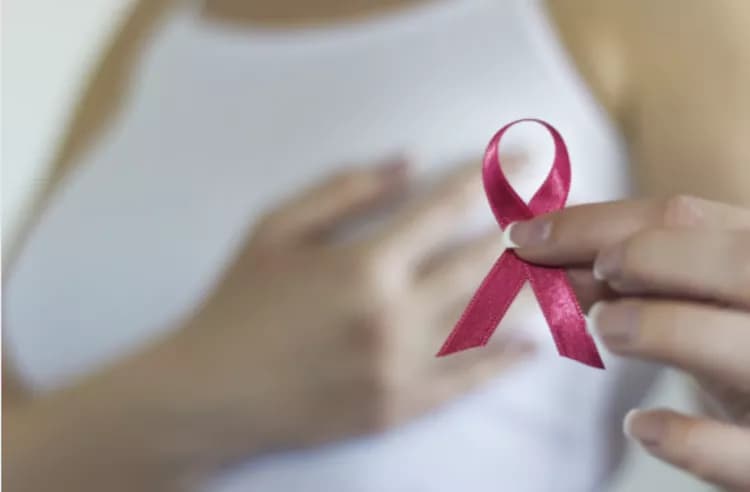
Breast Cancer Linked To Bacterial Imbalances
In a newly published study, Cleveland Clinic researchers have uncovered differences in the bacterial composition of breast tissue of healthy women vs. women with breast cancer. The research team has discovered for the first time that healthy breast tissue contains more of the bacterial species Methylobacterium, a finding which could offer a new perspective in the battle against breast cancer.
Bacteria that live in the body, known as the microbiome, influence many diseases. Most research has been done on the "gut" microbiome, or bacteria in the digestive tract. Researchers have long suspected that a "microbiome" exists within breast tissue and plays a role in breast cancer but it has not yet been characterized. The research team has taken the first step toward understanding the composition of the bacteria in breast cancer by uncovering distinct microbial differences in healthy and cancerous breast tissue.
"To my knowledge, this is the first study to examine both breast tissue and distant sites of the body for bacterial differences in breast cancer," said co-senior author Charis Eng, M.D., Ph.D., chair of Cleveland Clinic's Genomic Medicine Institute and director of the Center for Personalized Genetic Healthcare. "Our hope is to find a biomarker that would help us diagnose breast cancer quickly and easily. In our wildest dreams, we hope we can use microbiomics right before breast cancer forms and then prevent cancer with probiotics or antibiotics."
Published online in Oncotarget on Oct. 5, 2017, the study examined the tissues of 78 patients who underwent mastectomy for invasive carcinoma or elective cosmetic breast surgery. In addition, they examined oral rinse and urine to determine the bacterial composition of these distant sites in the body.
In addition to the Methylobacterium finding, the team discovered that cancer patients' urine samples had increased levels of gram-positive bacteria, including Staphylococcus and Actinomyces. Further studies are needed to determine the role these organisms may play in breast cancer.
Co-senior author Stephen Grobymer, M.D., said, "If we can target specific pro-cancer bacteria, we may be able to make the environment less hospitable to cancer and enhance existing treatments. Larger studies are needed but this work is a solid first step in better understanding the significant role of bacterial imbalances in breast cancer." Dr. Grobmyer is section head of Surgical Oncology and director of Breast Services at Cleveland Clinic.
The study provides proof-of-principle evidence to support further research into the creation and utilization of loaded submicroscopic particles (nanoparticles), targeting these pro-cancer bacteria. Funded by a grant from the Center for Transformational Nanomedicine, Drs. Grobmyer and Eng are collaborating with investigators at Hebrew University to develop new treatments using nanotechnology to deliver antibiotics directly to the bacterial community in breast cancer.
Breast cancer is the second most common cancer in women (after skin cancer) in the United States, where 1 in 8 women will develop the disease in their lifetimes.
The study was funded by a Clinical Research Mentorship Award from the Doris Duke Charitable Foundation, The Society of Surgical Oncology Foundation, Cleveland Clinic's Taussig Cancer Institute, Earlier.org, and Randy and Ken Kendrick. Dr. Eng holds the Sondra J. and Stephen R. Hardis Endowed Chair of Cancer Genomic Medicine at Cleveland Clinic.
Materials provided by Cleveland Clinic. Note: Content may be edited for style and length.
Disclaimer: DoveMed is not responsible for the accuracy of the adapted version of news releases posted to DoveMed by contributing universities and institutions.
References:
Hannah Wang, Jessica Altemus, Farshad Niazi, Holly Green, Benjamin C. Calhoun, Charles Sturgis, Stephen R. Grobmyer, Charis Eng. (2017). Breast tissue, oral and urinary microbiomes in breast cancer. Oncotarget. DOI: 10.18632/oncotarget.21490
Related Articles
Test Your Knowledge
Asked by users
Related Centers
Related Specialties
Related Physicians
Related Procedures
Related Resources
Join DoveHubs
and connect with fellow professionals

0 Comments
Please log in to post a comment.